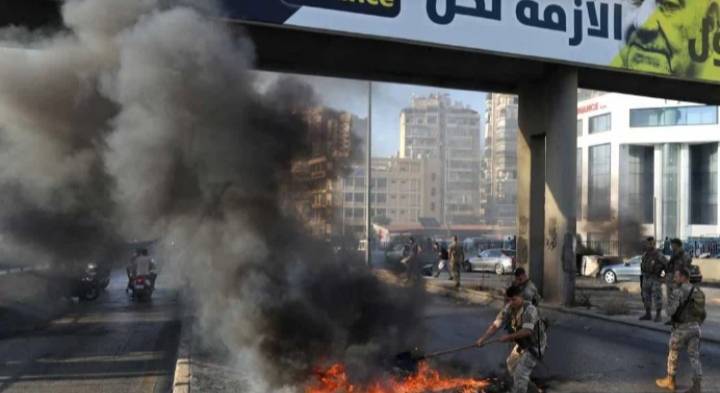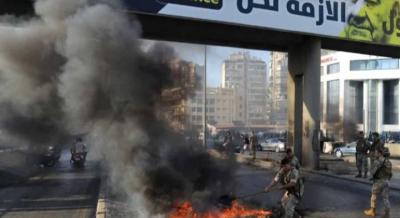The dollar continues its insane rise without any controls, and every time it surpasses a record rate, it jumps to another level, while the entire state surpasses madness. The judiciary is in a state that bears no relation to the concept of its existence, public administration is paralyzed, education is on a forced break of collapse, and constitutional institutions are suffering from a conflict of powers amid a presidential vacancy crisis. What's next? The country seems to be facing an uncertain fate that no one can predict its severity. Amid this horrifying scene, which has yet to stir a sense of responsibility among those concerned, only the head of the Progressive Socialist Party, Walid Jumblatt, is taking action in all directions. He spares no means and leaves no opportunity for discussion and dialogue, trying to extract proposals that could receive acceptance from all parties. However, the judicial crisis that jumped to the forefront with Judge Tarek Bitar's decision has overshadowed other issues and transformed into a madness that has placed the judiciary in the eye of the storm, a storm of chaos likely to last longer following the failure to hold the Higher Judicial Council meeting yesterday due to the absence of six members over disagreements stemming from the decisions issued by the lead investigator on one hand, and the rejection decisions from the Public Prosecutor of Cassation, Judge Ghassan Oueidat, on the other.
The courthouse witnessed chaos yesterday with accusations exchanged, escalating into scuffles. Some MPs present to support the victims’ families during their sit-in faced assaults and insults inside the courthouse. Judicial sources expressed concern over powerful parties potentially collaborating with involved judges to undermine the entire investigation, indicating that what is happening in the judiciary could lead to the collapse of the Lebanese system, calling for measures to keep investigations free from interference, influence, and settling accounts.
In a comment on the current situation within the judiciary, member of the Strong Lebanon bloc, MP Ziad Hawat, accused the "resistance axis" of imposing its authority on what remains of the foundations of the state and its entity. He told "Anbaa" electronic: "After they struck at all state components and took control of them, they now want to seize the judiciary and other institutions that have not succumbed to their authority by imposing a certain fait accompli and intimidating other parties by force to impose a compliant president who will complement their policy by taking Lebanon hostage on the American-Iranian negotiation table," insisting on the "necessity to confront what is happening."
Hawat considered that Judge Ghassan Oueidat "does not have the right to release detainees regardless of whether they are convicted or not, as he is not familiar with the investigation file that is the sole jurisdiction of the lead investigator, Tarek Bitar." He viewed the current situation in Lebanon as a similar approach to that adopted by the repressive system during the Syrian mandate.
Additionally, Paul Marqas, head of the Justice Foundation, stated in a call with "Anbaa" electronic that "the future of the judicial path of the port case is fraught with dangers, as there are major questions surrounding whether it will lead to justice or reveal the truth." He considered that "the situation is very difficult and complex and is subject to enormous political pressures that the Lebanese judiciary cannot withstand, which has led to this division and significant fracture," pointing out that "it would have been easier had the Higher Judicial Council managed to address this issue before it became compounded."
Regarding the presidential file, Hawat revealed that the Strong Lebanon bloc "submitted a petition to Speaker Nabih Berri to schedule consecutive sessions until a president is elected," calling on the opposition to "unite to confront what Lebanon is exposed to from a conspiracy to detach it from its Arab surroundings and push it into the Iranian axis." He considered that "a blessing in disguise may help bring together all opposition forces under a single goal aimed at preserving Lebanon's sovereignty and independence." However, while awaiting a clear vision that political forces can unite around to allow for a breakthrough in the alarming deadlock, the Lebanese face tough and harsh days manifesting in the dire living conditions threatening their livelihood, as scenes of roadblocks serve as a warning of what is to come if the concerned parties do not lower their high stances and seek ways for dialogue.




